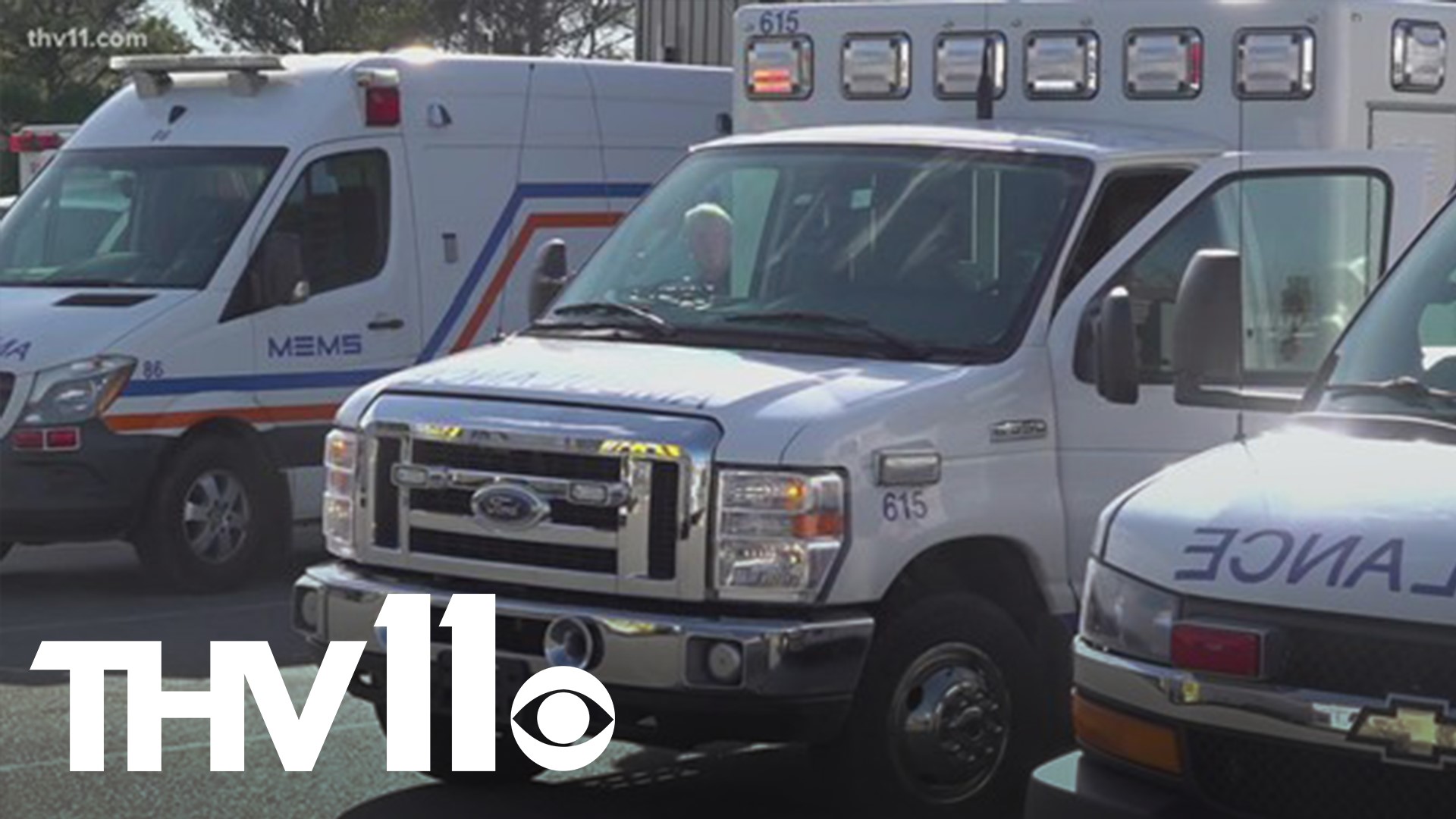LITTLE ROCK, Ark. — A lack of staffing in hospitals is affecting everyone including ambulance service.
Now, because of the Omicron variant, emergency medical technicians and paramedics are waiting longer at the emergency room than usual.
"If we're spending more time at the hospital than what the system designed for, then it really slows down the system," said Greg Thompson, executive director of Metropolitan Emergency Medical Services.
The system he is talking about is the process of getting a patient from an ambulance to the emergency room.
"So the system is designed for the ambulance to go to the hospital, drop off their patient [and] be back in service after doing [their] paperwork and cleaning in less than 30 minutes," Thompson said.
He said in areas like Little Rock, hospital delays have become the new normal in this pandemic.
"Since COVID, we're seeing times, sometimes as much as two or three hours," Thompson said.
So what's the reason behind the delay?
"The understaffing at the facilities [and] the hospitals are strapped for staff," Ken Kelley, government affairs chairman for the Arkansas Ambulance Association.
Kelley said the issue is that some hospitals are asking EMTs and paramedics to wait until the facility can accept the patient.
He adds that according to the Emergency Medical Treatment and Labor Act (EMTALA), once a medical unit is on hospital property, the patient becomes the hospital's responsibility.
"Asking the EMS crews to hold in that situation is really just that. It's just a request and it could be denied," Kelley said.
He said the association debuted a phone app in January 2021.
This app will allow EMTs and paramedics to report wait times at hospitals once they drop a patient off.
"They can easily report back on a per case basis what their wall-time [is], what their delay was, and some of the possible reasons," Kelley said.
In the future, Kelly said this will allow drivers to be able to pick hospitals that aren't so bad.
Thompson said despite the challenges, he will continue to work together with hospitals around the state to take care of patients.
"We're doing everything from cleaning beds to babysitting some patients for them, because we understand it's not us versus them. We're all in this together," Thompson said.

